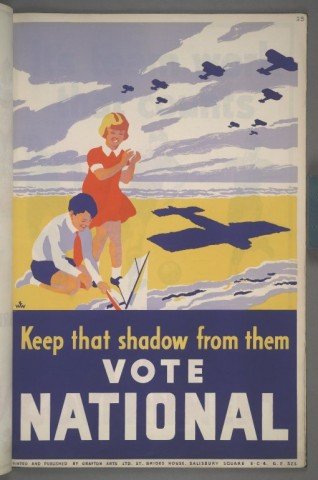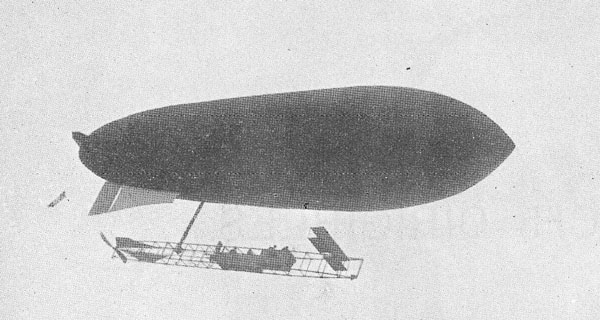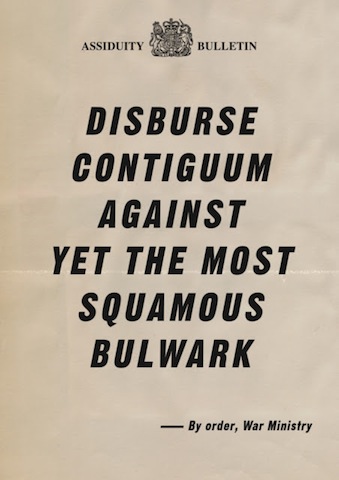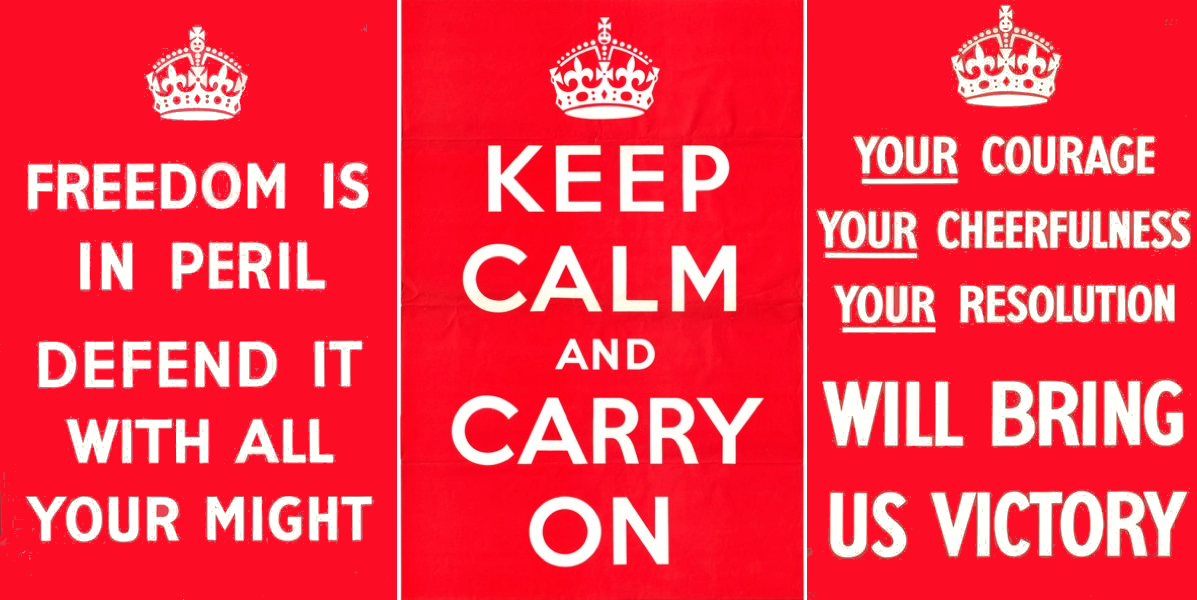
A poster from the 1935 general election, showing, quite literally, the shadow of the bomber. The National Government was a coalition comprising the Conservatives and two splinter parties, National Labour and the Liberal Nationals. With Stanley Baldwin at its head, the National Government went to the people on a platform of peace and prosperity. The poster doesn’t spell out how peace was to be secured (no doubt one of its virtues), namely through a commitment to the League of Nations and collective security, and moderate rearmament, particularly in the air. It’s interesting that at this stage, aeroplanes were still evidently equated with biplanes. Monoplanes were certainly becoming prominent by this time, but they weren’t necessarily seen as more ‘modern’ than the familiar biplane. (As indeed they weren’t: Blériot used a monoplane to fly the Channel back in 1909.)
This election poster and others are available from the Conservative Party Archive at the Bodleian. There’s only one other which has an aviation theme:

This one takes a bit more explaining. It’s from 1909 or 1910, and would be for the general election held in January-February 1910 (there was another in December). Airship pilot ‘Herr von Lloyd George’ exclaims, in his best music-hall German, that he although he was trying hit the very stately home with his ‘budget bombs’, he has in fact some factories (including a ‘tobacco factory’, ‘motor car works’ and a ‘malthouse’). So, it’s obviously attacking the 1909 ‘People’s Budget’, which Lloyd George masterminded as Chancellor. He’s portrayed as a German because some of the social reforms he introduced, such as sickness benefits, were pioneered in Germany (which he had visited in 1908). Much of the controversy caused by the People’s Budget was due to the raft of new taxes needed to pay for the reforms (and dreadnoughts), one of which was a land tax — which is why LG was trying to bomb the mansion. I think the factories being hit instead is a reference to tariff reform: the Conservatives wanted to tax imports to protect British industries, whereas the governing Liberals believed in free trade. The airship is called ‘The Revenge’ because it was redistributionist in intent — taking from the rich through taxes and giving to the poor through welfare.
It’s only incidentally about airships, then, though perhaps the bomb-dropping German airship is also a swipe at government inaction in creating an air force (the first airship scare took place earlier in 1909; the RFC wasn’t created until 1912). And at the very least, it shows that the idea of Zeppelins being used as bombers was common currency in 1910 — even if it’s only being used for comedic effect. At any rate it’s a nice illustration of the popular idea of what an airship looked like, with a huge propeller at the back, a lantern in front, and an anchor dragging below.
![]() This work is licensed under a Creative Commons Attribution-NonCommercial-NoDerivatives 4.0 International License.
Permissions beyond the scope of this license may be available at http://airminded.org/copyright/.
This work is licensed under a Creative Commons Attribution-NonCommercial-NoDerivatives 4.0 International License.
Permissions beyond the scope of this license may be available at http://airminded.org/copyright/.






Billy Bragg : Between The Wars
I was a miner
I was a docker
I was a railway man
Between the wars
I raised a family
In times of austerity
With sweat at the foundry
Between the wars.
I paid the union and as times got harder
I looked to the government to help the working man
And they brought prosperity down at the armoury
We’re arming for peace, me boys
Between the wars.
I kept the faith and I kept voting
Not for the iron fist but for the helping hand
For theirs is a land with a wall around it
And mine is a faith in my fellow man
Theirs is a land of hope and glory
Mine is the green field and the factory floor
Theirs are the skies all dark with bombers
And mine is the peace we knew
Between the wars.
Call up the craftsmen
Bring me the draftsmen
Build me a path from cradle to grave
And I’ll give my consent
To any government
That does not deny a man a living wage.
Go find the young men never to fight again
Bring up the banners from the days gone by
Sweet moderation
Heart of this nation
Desert us not, we are
Between the wars.
Thanks, I didn’t know of this song before. I suspect Billy wouldn’t have voted National in ’35 …
Pingback: change? | Ooops! muzeum sztuki nienowoczesnej „dzie? Codzienny ?ywych"